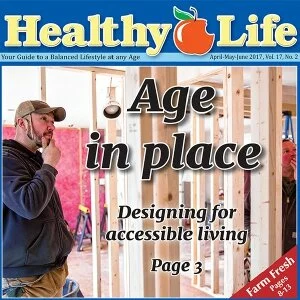Disability and aged care services are about helping people live the best and make the most out of their lives. It is not just a job for you but a journey of compassion and empathy. Disability and aged care services bring you a challenge with every person you meet. Every person is different, and so as you move forward in this career, you get to explore the qualities that you possess; the conditions that you need to work on to perform better; and the people and their lives that you get to be a part. It offers evergreen growth options, and you never know which story can change yours forever. As a career option, what does disability services has to offer, though?
Job security
With so many aged people around you, you never have to worry about going short on jobs. Then, the disability services have different sort of tasks that you can choose as per your liking – which varies from behavioural support officer to disability support worker to senior personal care assistant, from respite centre to group homes. The best thing about disability services is the skill set, which is very common throughout the variety of types that the job comes.
Job satisfaction
Once you know that you will find a job for sure, think about the fact that it is going to be the one that you like. The people you help and their success stories, their smiles act as a constant motivation to get up and go to work every day. The job comes with the knowledge that you are not only making a difference in someone else’s life but on your own too. Once undertaking slips, trips and falls training, for example, you will start to utilise what you have learnt and will eventually help save someone from severely injuring themselves further. You will feel extremely satisfied, the appreciation most patients feel and act toward their nurse or carer is very rewarding and should leave you feeling happy.
What you offer
To outline your job, you will have to provide personal, physical and emotional support to people with disability. Let us admit that at times it is harder to rely on someone else for everything – even when you have a reason to. The biggest challenge of the job is to make a person that much comfortable. Once you do the best you can to offer your services, you become family. At times, all you have to do is be there, and that can make all the difference in a person’s life.
What else does the job include?
There are several things that you do as a part of your job, like:
- Developing programs to help the client develop skills so that they live as independently as they can
- Planning outings and other social activities
- You have to be a part of events like shopping and deciding the meal as well.
- Helping them not lose track of their social lives (especially when it comes to family and relatives)
- Helping them with personal care, health care and hygiene and their safety so they can perform their most.
Growth
While doing all this, you get an insight into someone else’s life, you learn from their experiences. If you are curious enough, you get to know about stories that even at times the families of the clients aren’t aware. So, you grow with your client. It is like giving back to people what you got from someone else – it is like learning to walk.
Payscale
Your salary varies from your role to the state of your residence. Most jobs under the National disability insurance scheme (NDIS) are part-time or casual, which adds the most flexibility to the position. What more can you ask for if you get access to your pays tax-free?
The job doesn’t only help you with your emotional and communication skills but proves to be good for your wallet as well. This is the kind of job that brings a smile to your face at the end of the day.


